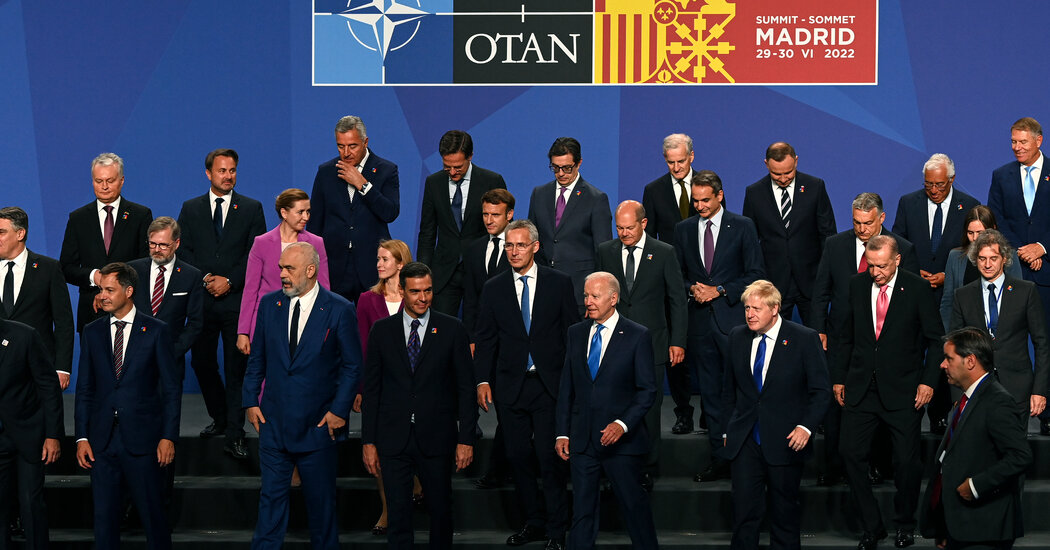
NATO was applauding on Wednesday after Turkey dropped its objections to allowing Sweden and Finland to join the military alliance. But some people were upset about the agreement, among them members of Sweden’s large Kurdish diaspora and critics of the Turkish government.
Amineh Kakabaveh, a member of Sweden’s Parliament who is of Kurdish descent, accused the Swedish government of betraying the Kurds, thousands of whom, she said, had fought to defeat the Islamic State terrorist group.
She criticized Sweden for caving in to demands from President Recep Tayyip Erdogan of Turkey, who agreed to lift his block on Sweden’s and Finland’s membership in return for promises that they would act against terrorist organizations, including the Kurdistan Workers’ Party, or P.K.K., which seeks an independent Kurdish state on territory partly within Turkey’s borders.
“It’s unfathomable that Sweden can go along with such demands from Erdogan and Turkey without making any counter demands against Turkey,” Ms. Kakabaveh said, noting that members of Turkey’s Kurdish minority had fled for their lives from Turkey and that dozens of people living in Sweden and Finland could now face extradition.
The P.K.K. is outlawed in Turkey, where it has attacked nonmilitary targets and killed civilians, and the United States and the European Union have designated it as a terrorist organization. Nevertheless, some in Sweden, where there is a relatively large Kurdish diaspora, view it more sympathetically, as a Kurdish nationalist movement.
Mr. Erdogan also remains angry over support from Washington and Stockholm for a P.K.K.-affiliated militia in Syria, where the group was fighting the Islamic State. His government rebuked the United States and Sweden over the matter last year.
Hamza Yalcin, a Turkish writer and journalist who is on the list of those Mr. Erdogan is seeking to extradite, said he worried that the NATO agreement could result in his being sent back to Turkey, where he said he had been tortured and thrown into prison twice, accused of having played a role in trying to overthrow the Turkish government in the 1980s.
“I’m afraid of being extradited,” Mr. Yalcin, 64, said by telephone from his home in southern Sweden, noting that the Turkish military had hanged four of his friends and that his younger brother had died in a Turkish prison. Mr. Yalcin fled to Sweden, where he was granted asylum in 1987, he said.
“I chose Sweden because Sweden was a neutral country,” he said.
Mr. Yalcin became a Swedish citizen in 2007, but that didn’t prevent Interpol, the international law enforcement organization, from arresting him while he was on vacation in Spain in August 2017, on an extradition order issued by Turkey. He spent nearly two months in jail while a court in Madrid investigated charges that he led a terrorist organization. The court eventually released him for lack of evidence.
Jan Hallenberg, research leader at the Swedish Institute of International Affairs, said Sweden’s agreement with Turkey did not make any concrete concessions, but rather signaled a paradigm shift in the country’s foreign policy, from idealism to realism.
“I understand the views of Amineh Kakabaveh, the P.K.K. and other Kurds,” Mr. Hallenberg said, noting that he had a Kurdish colleague who had spent 20 months in a Turkish jail.
Still, Mr. Hallenberg said, after Russia’s invasion of Ukraine, other considerations had become paramount for policymakers “because the security of Sweden and Finland are both threatened.”




